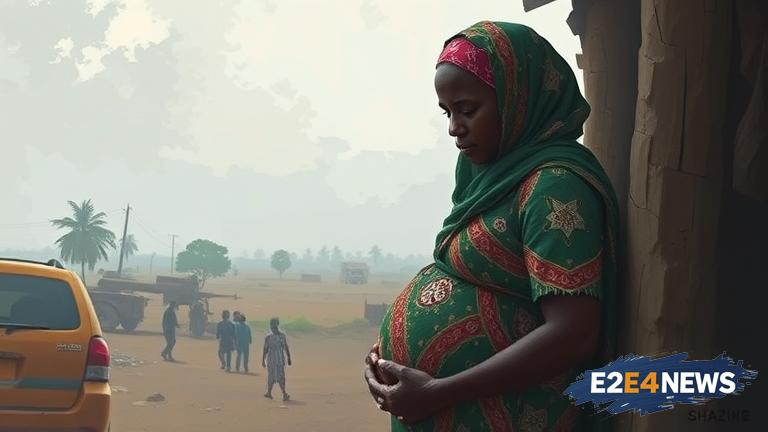The conflict in Nigeria’s north has led to a significant increase in pregnancy-related complications and deaths. Many women in the region are struggling to access basic healthcare services, including prenatal care and delivery services. The lack of access to healthcare has resulted in a high number of maternal and infant deaths. The conflict has also led to a rise in violence against women, including rape and forced marriage. Women in the region are often forced to give birth in unsanitary conditions, without access to medical care or pain relief. The situation is further complicated by the fact that many healthcare workers have fled the region due to the conflict. The Nigerian government has been criticized for its response to the crisis, with many arguing that it has not done enough to protect women and children. The international community has also been called upon to provide more support to the region. Despite the challenges, many organizations are working to provide healthcare services to women in the region. These organizations are often forced to operate in secret, due to the risk of violence and intimidation. The conflict in Nigeria’s north has also had a significant impact on the country’s economy and infrastructure. Many schools and hospitals have been destroyed, and trade has been disrupted. The situation is further complicated by the fact that many people in the region are struggling to access basic necessities like food and water. The conflict has also led to a rise in human trafficking, with many women and children being forced into slavery. The Nigerian government has promised to do more to address the crisis, but many are skeptical about its ability to deliver. The international community has a critical role to play in supporting the Nigerian government and providing humanitarian aid to the region. The situation in Nigeria’s north is a complex one, with many different factors contributing to the crisis. However, one thing is clear: the international community must do more to support the women and children of Nigeria’s north. The conflict has had a devastating impact on the region, and it will take a long time to recover. In the meantime, it is essential that we provide as much support as possible to those affected. This includes providing access to healthcare, food, and water, as well as protecting women and children from violence and exploitation. The Nigerian government must also do more to address the root causes of the conflict, including poverty and inequality. By working together, we can help to bring peace and stability to the region, and ensure that women and children have access to the healthcare and support they need. The situation in Nigeria’s north is a reminder of the importance of protecting human rights, particularly the rights of women and children. It is essential that we do everything in our power to prevent similar crises from occurring in the future. This includes providing support to countries affected by conflict, as well as promoting peace and stability around the world. The international community has a critical role to play in promoting human rights and preventing humanitarian crises. By working together, we can create a safer and more just world for all.
